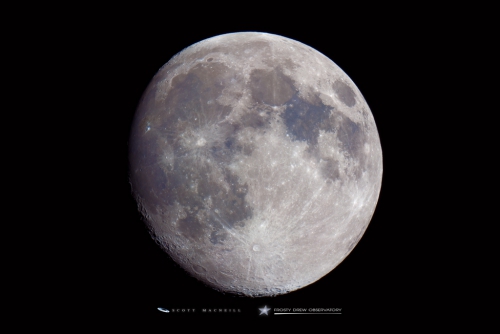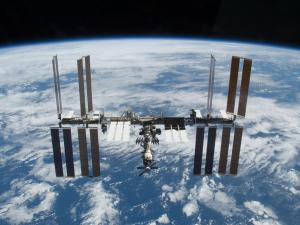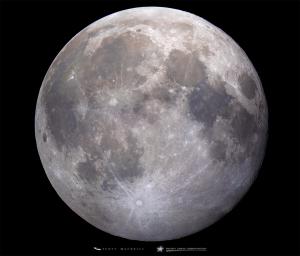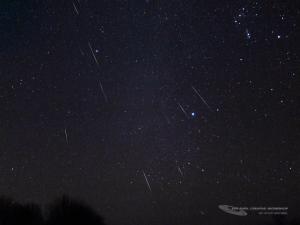
Stargazing Nights
- Where:
- Frosty Drew Observatory
- When:
- Friday December 1, 2017 at 6:00 p.m
- Cost:
- $1 Suggested Donation per Person
Tonight is Stargazing Night at Frosty Drew Observatory and the trend of fantastically clear Friday nights rocks on! We can expect clear skies tonight for our entire geek out. Temps will start of in the upper 40’s and drop into the low 30’s overnight, which could bring some difficult seeing conditions, though we will take it as it goes. The 94% waxing gibbous Moon will be with us all night long, blazing massive moonlight into the starscape, which will keep all but the brightest objects outside of our view. So the Moon and multiple star systems will be our primary targets tonight.
The Observatory opens at 6:00 p.m. tonight. Telescopes will start off with views of the bright gibbous Moon, showcasing the cratered lunar surface. Albireo, Gamma Andromeda, 61 Cygni, Rigel, and many more binary stars are on our list. Though blasted with moonlight, we will attempt a view at the fantastic Orion Nebula later in the night. The Observatory will stay open until 11:30 p.m. as we battle the Moon.
Overall, tonight will be another beautiful clear night. Though the near Full Moon will dominate the sky, keeping breathtaking views of the stars beyond our reach. If the Moon is your crush, then tonight is your night, especially with the Supermoon occurring on Monday. If you’re looking for a dark sky geek-out, then this is a night to skip. Regardless, the night is full of astro-fixes for those looking to catch up on the latest in the cosmos. So stop in, have a lunar geek-out and catch up on all the amazing things happening in astronomy.
-------------------
Weekly Happenings
Scott MacNeill
The International Space Station (ISS) has been making some fabulous evening passes over the USA this past week, which will continue until December 20th. Step outside tonight at 5:26 p.m., look to the western sky and catch sight of the ISS. It will continue rising to 39° heading towards the north northeast. See it again tomorrow evening (Saturday) at 6:11 p.m. in the west northwest sky, rising to 18° heading towards the north. Then finish off your weekend with a Sunday night viewing of the ISS in the west northwest sky, rising to 23° heading towards the north northeast. These times will work fine for most Northeast USA sky watchers. For times outside of that area, visit NASAs Spot the Station.
This coming Sunday, December 3rd at 10:47 a.m. ET the Full Moon will occur. About seventeen hours later (December 4th at 3:43 a.m. ET), the monthly lunar perigee (the Moon’s closest point to the Earth in its orbit) will occur. That makes Sunday’s Full Moon a Supermoon. Though not the closest lunar perigee of the year, which happened on May 26th, it is the second closest. At the time of perigee, the Moon will be 222,137 miles distant from the Earth. Compare that to the yearly apogee (furthest from Earth) at 252,652 miles distant, which will happen on December 18th at 8:28 p.m. ET. If you’re looking to catch a view of the supermoon, just step outside. If you’re looking to catch a geek out with the supermoon, stop in at Pawtuxet Village, the Sidewalk Astronmers may be setup on the bridge with their telescopes showing off the supermoon and more.
The best meteor shower of the year is about to kick off. Monday, December 4th brings the start of the annual Geminid Meteor Shower to planet Earth. Bringing additional meteor activity each night of the meteor shower, the night to be out is Wednesday, December 13th, the peak night. During the Geminid peak, meteor activity will blast into the 120 meteors per hour range, and 2017 is setup for a fabulous night of meteor amazement. The Moon, which is a meteor shower killer, will spend most of the night below the horizon, until the 3:29 a.m. 12% waning crescent Moon rise. At 12%, the Moon will barely interfere with meteor visibility and will give us stunning views of the thin crescent alongside Geminid meteors. The shower really starts kicking in around 9:00 p.m. and goes until dawn Thursday morning. If weather plays nice, we will be at Frosty Drew Observatory for the whole night to catch the shower. So pencil Frosty Drew Observatory in for Wednesday, December 13th and join us under a sky full of stars, blazing with meteors!
-Scott



